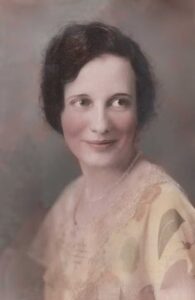In the two years since I wrote To Lynetta for the jonestown report, I have realised that at least two of my observations have evolved.
First, I said that Jim Jones feared his mother, but later decided that “fear” is probably the wrong word. It seems more likely that there was a tension between them stemming from his childhood that was still unresolved at the time of her death. Any form of physical harm that came to him as a child was projected onto James Thurman Jones, his injured father, but the harm was likely Lynetta’s doing. For some reason, Jim blamed the wrong parent.
I also stated that Lynetta laughed at Jim’s drug addiction in Jonestown and the fact he was beyond help. I now understand this was not really the case. It’s true she laughed at the idea of him overcoming his problem, but after analysing Jim and the situation further, I am no longer under the impression that he was beyond help. Even the extent of any addiction can be questioned.
Terms like abuse and addiction are often used casually and interchangeably, yet they have different meanings that need to be considered more carefully.
By all accounts, drug abuse is the abuse of illegal substances or misuse of medication. It can appear casual in certain settings. However, addiction is the use of substances that have such a strong impact on the brain that functionality is altered. Addiction is considered a disease that takes over a person’s life. Someone with an abuse problem can seemingly have an addiction, but they’re actually in control of their usage.
It is revealing that only a single substance was found in Jim’s body after death that would indicate some kind of tolerance. There was no indication of ill health or effects brought on by drugs either, which means the narrative that suggests he was dying because of them (or dying in general) is only speculation.
Considering all this, Jim was not an addict in the true sense. It is commonly stated and plays into a dramatic narrative, but he was on top of any drug use until the end, much more than he’s given credit for. It was not the be-all and end-all of him. If he could have had a break from leadership for his mental health and realised all the negative people and influences around him, it is reasonable to suggest that he could have overcome the problem he did have, even if his mother and others doubted it. Laughing it off wasn’t really helpful, but she was that type of person, with or without drugs being involved.
I still believe – as I wrote two years ago – that Lynetta couldn’t love her son the way he wanted or expected to be loved, and that it wasn’t necessarily her fault. This is not blaming Jim for her lack of affection, I just don’t think she had the capacity for it like someone such as Myrtle Kennedy. She was Jim’s greatest family without blood connection, and that continued beyond childhood.
 Even though neither of Jim’s parents exerted the greatest influences in Jim’s life, there are many positives about other family members. Although little is spoken of about the Putnams, you have to go beyond Lynetta and her side of the family. There is a calm feeling around Sarah Florence Jones on family photos, which extends to all of Jim’s aunts, uncles and grandparents. They worked hard in Indiana. There was a sense of closeness and friendly community. They married and had children of their own. Many relatives served in the military. Being remembered alongside their infamous relative and his legacy cannot be avoided, but I’m certain the Joneses are thought of fondly as they created memories in their own right.
Even though neither of Jim’s parents exerted the greatest influences in Jim’s life, there are many positives about other family members. Although little is spoken of about the Putnams, you have to go beyond Lynetta and her side of the family. There is a calm feeling around Sarah Florence Jones on family photos, which extends to all of Jim’s aunts, uncles and grandparents. They worked hard in Indiana. There was a sense of closeness and friendly community. They married and had children of their own. Many relatives served in the military. Being remembered alongside their infamous relative and his legacy cannot be avoided, but I’m certain the Joneses are thought of fondly as they created memories in their own right.
(Jolene McDonald is an admin of the Facebook group Jim Jones Cult Leader created in February 2018, and the creator of a blog – the Jim Jones Information Blog – to share some of the informative posts from the group. The posts from the blog also appear here.
(Her other articles in this edition of the jonestown report are Six Unique Books, Shedding Light on Jonestown: The Forensic Photos, and The Jim Jones Archive: An Introduction. Her collected works on this site are here.)